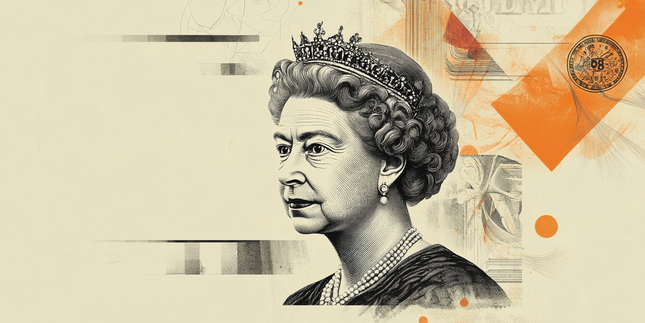Outlook
When the economic calendar is light, as it is today, we can turn to institutional issues. Top of the heap is the EC-Greek talks, which after some haggling will begin Wednesday in Brussels. Dijsselbloem is frustrated at Greece declining to invite hordes of paper-pushers to Athens, where the key documents reside, but the Greeks don’t like the image of hordes of “bailout monitors” descending on their buildings. The foreign minister reportedly offended just about everybody by threatening to allow a different horde—Middle East refugees--into Greece as a gateway to Europe. This seriously annoys the immigration-wary northerners. Greece is not going to get the last €7.2 billion in bailout money unless and until it names specific reforms that meet EC approval, and over the past two weeks, Greece has not offered anything close to qualifying reforms.
It won’t be long before Grexit rears its ugly head again. The Guardian has a piece today on the conflict between EC requirements and democracy. Democracy loses, which it always does unless there is political union and/or a transfer union (like the US). The writers’ point is that eurozone may be doomed.
Well, the structural deficiencies of the eurozone have been well-known for decades (and thoroughly described in The Rotten Heart of Europe by Bernard Connolly). To be fair, eurozone critics don’t give enough credit to the war-ending aspect of union—some union, any union.
Not all of the euro sell-off should be attributed to sentiment. Another institutional aspect we can ponder over is the flood of money going into European notes and bonds. We don’t have data on how much—we never do in the opaque bond market—but certainly a large chunk of it must be from outside the eurozone, hence the sell-off in the euro by hedgers and speculators. As long as these bond traders have a strong expectation of being able to cover the currency side at lower exchange rates, the rally can go on, and on. Some skeptics continue to wonder when Europe runs out of paper. Banks, insurance companies and many investment fund managers must hold government bonds under their own rules or under law. At some point, we should expect innovation in creation of new kinds of private paper. This is what would happen in the US, but it’s not clear it will happen in old-school Europe.
Notice that the focus is on Europe (and China), and not on the US. The dollar is on the upswing on the general principle that growth + rising rates (someday) beats no-growth and falling rates of return. It’s not an inflation differential—it’s pure economic outlook and yield differential. At some point we can contemplate inflation as the leading indicator, but not for a while to come and probably not this year.
At some point the dollar will become so overbought and the euro so oversold that a correction is inevitable, but conditions are not normal and customary these days. When the correction does come, it won’t be to 1.2500 and more, but depending on the ending point—parity? 0.9750? 0.8800?—a lesser number.
Again, we are not suggesting ECB intervention, but Germany is not alone in a serious dislike of a weak currency. In any case, today the reins are loose and we expect the market to run away with the euro. Folks will be betting the ranch. We would, too.
This morning FX briefing is an information service, not a trading system. All trade recommendations are included in the afternoon report.
Recommended Content
Editors’ Picks

EUR/USD gains traction toward 1.0850 after Eurozone data
EUR/USD picks up fresh bids and trades in positive territory near 1.0850 on Monday. The pair draws support from upbeat Eurozone Sentix Investor Confidence data for March, which improved to -2.9 from February's -12.7, lifting the sentiment around the Euro.

GBP/USD rises above 1.2900, struggles to gather bullish momentum
GBP/USD holds steady above 1.2900 after falling toward 1.2870 earlier in the day. The risk-averse market atmosphere amid the uncertainty surrounding US President Donald Trump's trade policies, however, caps the pair's upside.

Gold retreats to $2,900 area in choppy session
Gold struggles to hold its ground and trades in the red near $2,900 on Monday. In the absence of high-impact data releases, investors refrain from taking large positions and wait for fresh developments surrounding the Trump administration's tariff policy.

Five Fundamentals for the Week: Trade war, inflation and consumer confidence to shake markets Premium
Trade-war developments continue dominating headlines, with several levies set to come into force. US inflation figures are set to rock markets despite not fully reflecting tariffs. Consumer sentiment is of high interest after the plunge seen last time.

February CPI preview: The tariff winds start to blow
Consumer price inflation came out of the gate strong in 2025, but price growth looks to have cooled somewhat in February. We estimate headline CPI rose 0.25% and the core index advanced 0.27%. The moderation in the core index is likely to reflect some giveback in a handful of categories that soared in January.

The Best brokers to trade EUR/USD
SPONSORED Discover the top brokers for trading EUR/USD in 2025. Our list features brokers with competitive spreads, fast execution, and powerful platforms. Whether you're a beginner or an expert, find the right partner to navigate the dynamic Forex market.